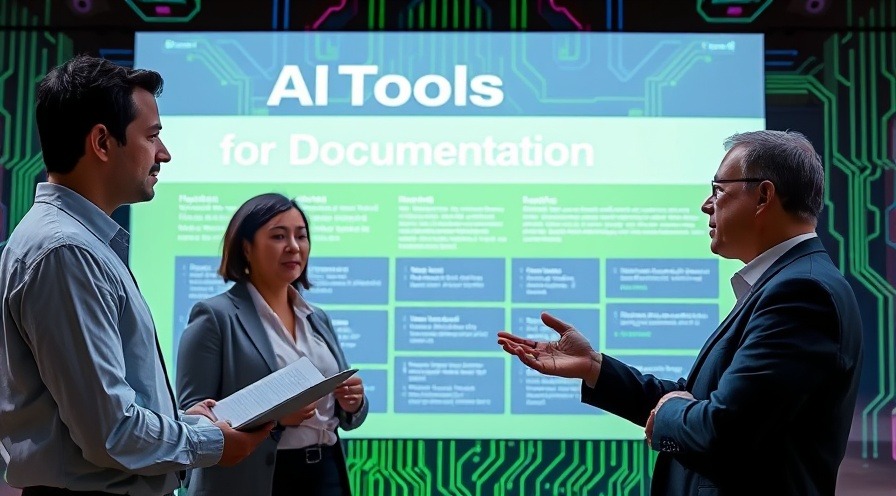
How AI Tools Are Revolutionizing Medical Documentation
In "AI Tools for Documentation: The Newest Member of the Care Team," a recent webinar discussion demonstrated the profound impact artificial intelligence (AI) tools are having on medical documentation in health care settings. As the health care industry grapples with increasing pressure on physicians and a rising burnout crisis, the introduction of ambient listening technologies offers a promising solution to streamline workflows, enhance physician well-being, and improve patient care.
In "AI Tools for Documentation: The Newest Member of the Care Team," the discussion dives into how AI technologies are reshaping workflows and addressing physician burnout, prompting a deeper analysis of their implications.
Understanding the Role of AI in Health Care
AI tools in health care, specifically ambient listening tools, allow clinicians to conduct natural conversations with patients while the technology automatically transcribes and drafts notes. This innovation represents a significant shift away from traditional, labor-intensive documentation methods, which often draw much of a physician's attention away from face-to-face interactions. With AI systems listening to patient conversations, physicians can focus on providing personalized care without the cognitive burden of extensive note-taking.
AI’s Impact on Physician Burnout
The evidence from recent implementations at organizations such as the University of Iowa Health and Mass General Brigham showcases the positive effects AI documentation has had on reducing clinician burnout. Initial trials indicated a marked improvement in burnout rates among physicians using these tools, with average burnout scores dropping significantly. Not only did these AI systems save valuable time—about 2.6 hours per week on average—but they also reportedly enhanced work-life balance and improved interactions with patients.
As Dr. Jason Misrach from the University of Iowa highlighted, the transition from frustration to satisfaction was palpable. Many clinicians found that being able to verbally express their notes facilitated deeper connections with patients, reducing the hassle of typing and allowing them to be more present during consultations. By allowing physicians to maintain eye contact and engage with their patients, these tools foster a more compassionate and attentive interaction.
The Challenges of Implementing AI Tools
However, the integration of AI into clinical workflows is not without its challenges. The costs of these systems—ranging from $100 to $600 per clinician monthly—can be prohibitive, particularly for smaller practices. Additionally, there are concerns about the accuracy of AI-generated documentation, such as the categorization of medications and the importance of verifying the information recorded. Many physicians expressed the sentiment of "trust but verify," emphasizing the necessity of checking AI-generated notes for errors before they are added to patient records.
Looking Forward: The Promise of AI in Health Care
As organizations experiment with AI technologies, it's crucial for clinicians to engage with informed implementation processes. According to Dr. Lidia Moura from Mass General Brigham, the pilot programs for these AI tools gained significant interest and participation among physicians, showing a clear desire to embrace the potential of AI to improve patient care.
Ultimately, as AI tools continue to evolve, their applications in medical documentation could profoundly influence the future of health care delivery, promoting efficiency, enhancing patient interactions, and alleviating burnout among healthcare professionals. It's essential for healthcare leaders to remain aware of the changing dynamics in the healthcare space and to adapt accordingly, ensuring that both patients and providers can benefit from these innovative tools.
 Add Row
Add Row  Add
Add 




Write A Comment